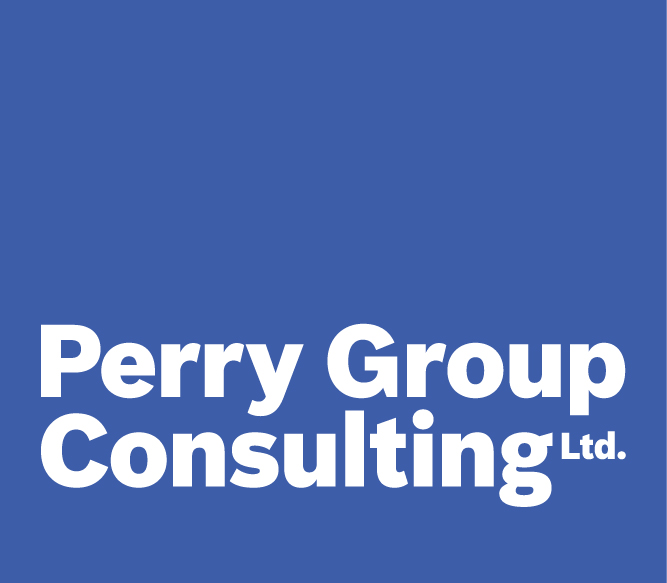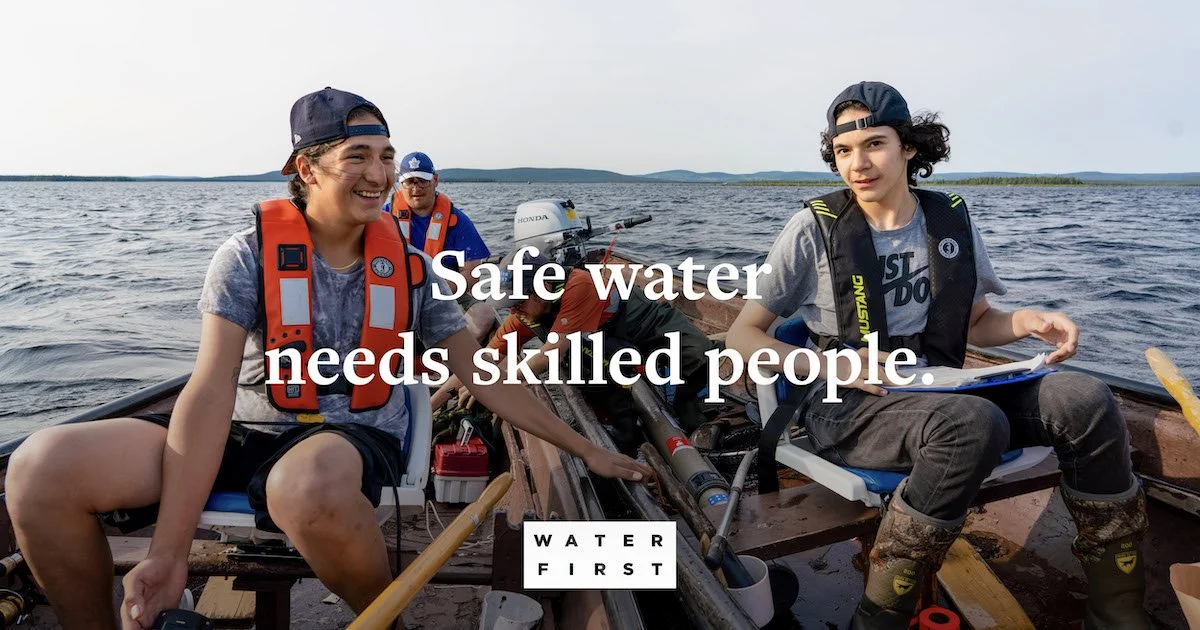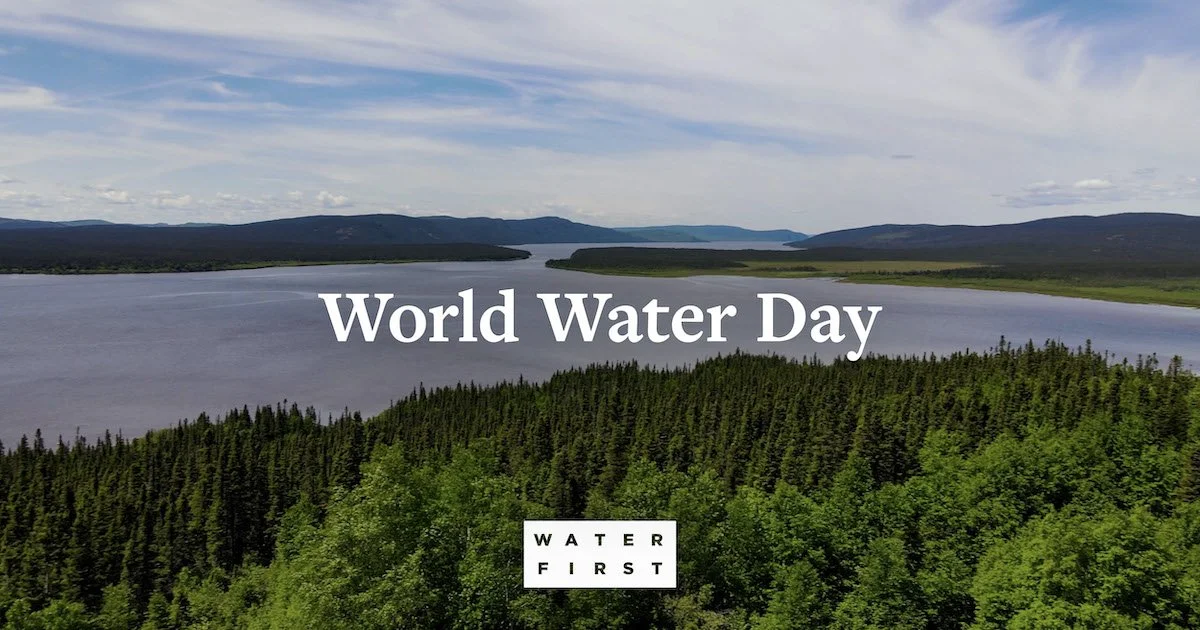Water Stewardship in Indigenous Communities – Water First
Perry Group is a proud supporter of Water First and here we explore the work of Water First ahead of World Water Day on the 22nd March, including a first here - a special podcast episode.
One of the most fundamental challenges in Canada today is the lack of sustainable access to safe, clean water for Indigenous Peoples. Every community’s experience and relationship with water is unique, and nobody understands the evolving challenges and needs more than the people who live there. The water challenges faced by many Indigenous communities in Canada are complex. In some communities, the concern may be around infrastructure, for others source water concerns. And some communities have challenges with capacity and training. Having enough trained people to operate and maintain the systems is critical to ensuring safe, clean water in Indigenous communities for the long term. Safe water needs skilled people.
Charity Spotlight – Water First
Water First is Canada’s leading charitable organization dedicated to working with Indigenous communities to address water challenges through education, training, and meaningful collaboration.
“That my people are safe, they have clean drinking water, and that they can turn their tap on every morning and have water. That’s my biggest accomplishment at the end of the day, is making sure that my people are safe.” Hunter Edison, OIT. Drinking Water Internship Graduate, Niisaachewan Anishinaabe Nation.
Listen here to a new podcast episode exploring the disparity of water in Indigenous lands through a conversation with Dillon Koopmans, Educational Programs Manager at Water First and Ben Perry, President at Perry Group.
“I just love this notion of investing in youth in the community to self-help to be able to run systems and design and manage systems, water systems for communities, First Nation communities, says Ben. “It still needs stewardship, it still needs management, right, and one person well trained can manage that system for their community.”
World Water Day
This year Water First will be focusing on the importance of people and locally-based skills training programs as critical components of addressing water challenges in Indigenous communities. Many Indigenous communities in Canada have identified the need for more young, qualified, and local personnel to support solving water issues, independently and for the long term. However, there is a lack of locally available opportunities for young adults to gain the relevant skills and experiences. Infrastructure and technology alone cannot solve the water crisis; having enough trained people to operate and maintain the systems are also critical.
Water First Programs
Water First seeks donations and your donations can go towards these three programs.
Drinking Water Internship Program–technology alone does not provide clean and reliable drinking water; the people who run the systems are critical. Many Indigenous communities in Canada have identified the need for more young, qualified, and local personnel to support solving water issues, independently and for the long term. However, there is a lack of locally available opportunities for young adults to gain the relevant skills and experiences. Through a 15-month, paid internship, the Drinking Water Internship Program directly addresses this by supporting young Indigenous adults to become certified water treatment plant operators. This approach ensures sustainable access to safe drinking water in Indigenous communities for the long term.
Environmental Water Program–while working with many Indigenous communities, we have heard time and again their vision of Indigenous-led land management. Communities want to manage their water resources and track the effects of industry and climate change. As a result, they are seeking ways to strengthen their technical capacity to do so. Water First consults with our Indigenous partners about their long-term environmental water goals. By understanding their goals, we help to determine priority areas and local training needs. Based on local training needs, we design a custom training program related to fish habitat restoration, water quality monitoring, mapping, and data management.
Indigenous Schools Water Program–considering the water crisis faced by many Indigenous communities, there is a profound underrepresentation of Indigenous voices in Canada’s water governance. Couple this with a lack of employment opportunities for Indigenous youth and it becomes clear that it is critical we continue to offer Indigenous students the most impassioned, empowering, and exciting Water Science education learning opportunities possible. Water First delivers engaging, hands-on STEM-based Water Science programs to schools in Indigenous communities. These programs create opportunities for students to strengthen their understanding and relationship with the environment, and to foster a love of Water Science. During the programs, students spend time on the land and in the classroom exploring topics using Water Science tools and Water First learning resources.
We applaud the work of Water First in acknowledging that safe water needs skilled people. On #WorldWaterDay and every day, Water First collaborates with Indigenous communities in Canada to address critical water challenges through skills training and education programs. Let’s keep the conversation going!
We hope our support of Water First will stimulate our friends, peers, partners, and municipalities to learn more about Water First and understand how they can support too.
You can learn more by following Water First and visiting their website or perhaps you’ve heard and seen enough and you’d like to make a donation - that would make our day!
Images courtesy of Water First waterfirstngo. Thanks to John Gregory at Opencity Inc for the podcast episode.


